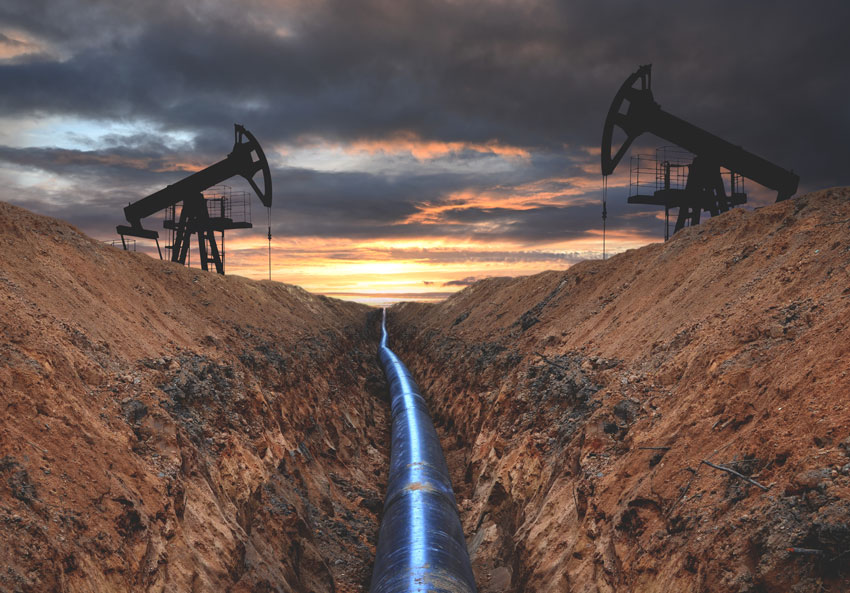Fossil fuels have long been a powerful pawn on the global energy chessboard, driving economic development but, unfortunately, also fueling conflict. Wars over resources have long existed, but fossil fuels have become a major driver of modern conflict. This relationship has profound implications for international stability, economic security and environmental sustainability. The ongoing war in Ukraine clearly illustrates the dire consequences of reliance on fossil fuels and is a wake-up call for the international community.
Since Russia invaded Ukraine, the world has witnessed a stark example of how fossil fuel revenues fund war and aggression. Russia has earned a staggering €693 billion from fossil fuel exports since the war began. EU countries alone purchased more than €196 billion worth of such exports, directly funding Russia’s war chest.
Revenues from fossil fuels enable Russia to sustain its military operations, inflict immense human suffering and destroy Ukraine’s energy infrastructure. Fifty percent of Ukraine’s energy infrastructure has been destroyed by Russian attacks, leading to power shortages in at least five regions since March 2024. of heavy casualties. This destruction highlights the vulnerability of energy infrastructure in conflict zones and the serious humanitarian crises that can result.
Despite strong protests against Russia’s aggression in Ukraine, European and G7 countries’ policies remain conflicted. While publicly condemning Russia’s actions, these countries continue to provide financial support through the purchase of fossil fuels. In the week of June 10-16, 2024, Russia’s fossil fuel exports were estimated at 5.06 billion euros, of which 2.04 billion euros were in oil, 1.84 billion euros in petroleum products and chemicals, 660 million euros in natural gas and 520 million euros in coal.
Furthermore, since the beginning of the full-scale invasion, European countries have been freely facilitating ship-to-ship (STS) transfers in their coastal waters, allowing Russia to conceal the origin of its oil and evade price cap policies. After a long period of public campaigning, especially by Ukrainian groups, the EU has finally included a transit ban in the 14th round of sanctions, although shockingly they have included a nine-month “transition period” before the ban comes into effect . This approach not only undermines sanctions but also helps Russia maintain its revenue streams, thus perpetuating the conflict. For example, as of May 2024, Russia has surpassed the United States to become Europe’s largest natural gas supplier, a fact that starkly highlights the hypocrisy of European leaders who claim to seek an end to Russia’s war atrocities.
Dependence on fossil fuels transcends immediate geopolitical conflicts; it has far-reaching implications for global stability and environmental sustainability. Fossil fuels are not just a source of revenue for the aggressor; They are also a significant contributor to the costly global climate crisis. Russia’s main liquefied natural gas (LNG) “carbon bomb” is exacerbating climate damage, costing the EU more than €650 billion since 1980. Shocking, dwarfing global carbon dioxide emissions.
The economic consequences of this dependence are equally severe. Despite European efforts to reduce dependence on Russian LNG, Europe’s hard-earned money continues to flow into Russian pockets, resulting in tens of thousands of Ukrainian casualties. From May 2023 to May 2024, Germany alone imported approximately 182.4 million euros of petroleum products made from Russian crude oil. Despite Europe’s efforts to diversify its energy sources, imports through the Belgian port of Zeebrugge increased by 41% in 2023 compared with 2022, reaching 4 billion cubic meters. equipment worth more than $630 million, further deepening dependence on fossil fuels.
Despite these challenges, there is hope. The war in Ukraine galvanized global efforts for energy independence and sustainability. Europe is ending winter with record levels of stored fossil gas, evidence of the growing success of cheap renewable energy production. This shift is critical to reducing reliance on Russia’s fossil fuels and moving toward a clean energy future.
It turns out that renewable energy is not only cheaper than fossil fuels, but also more reliable. They offer a path away from the myriad problems caused by fossil fuels, including funding petro-dictatorships, fueling desertification and famine, negatively impacting health, and driving inflation. The progress of Ukraine and other countries in adopting resilient renewable energy is commendable and provides a blueprint for others to follow.
Building more clean energy plants and investing in renewable energy sources such as wind and solar will improve Ukraine’s energy security and even help keep the electricity flowing as Russia continues to bombard the country’s energy infrastructure. To do this, however, Ukraine will need direct help from the EU to invest in Ukraine’s future clean energy infrastructure.
The relationship between war and fossil fuels is a complex and deep-rooted issue that requires immediate and decisive action. The war in Ukraine highlights the dire consequences of fossil fuel dependence and the urgent need to accelerate the current global shift to renewable energy; this is clearly the energy source of the future. By cutting off the financial lifeline that fossil fuels provide to Russia’s petro-dictators, supporting Ukraine’s transition to resilient clean energy, and imposing comprehensive sanctions, the international community can take an important step toward ending Russia’s horrific cycle of violence.
Looking ahead, progress in harnessing renewable energy sources in Ukraine and other countries offers hope. The transition to clean, renewable energy is an economic and strategic imperative for Ukraine’s energy security and an important component of ensuring global peace and security. Now is the time for the world to take action, end the hypocrisy, and support a future free from the chains of fossil fuel dependence. Only then can we hope to build a world where energy does not fuel war but promotes peace and prosperity for all.
Further reading on electronic international relations

